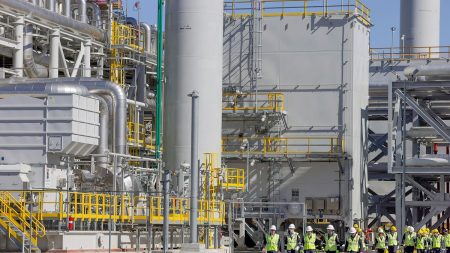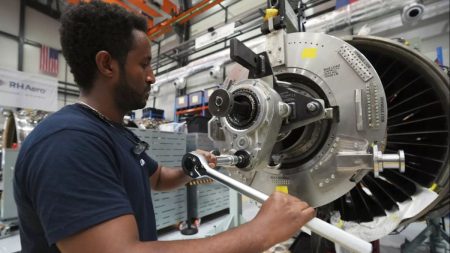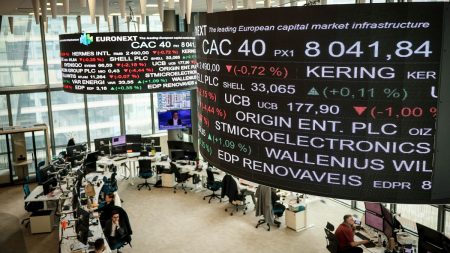Denmark’s Competitive Edge: A Deep Dive into the Danish Model
Denmark, consistently ranked among the world’s most competitive nations, boasts a unique labor market model that has contributed significantly to its economic success. This model, often referred to as "flexicurity," combines labor market flexibility with robust social security, creating a dynamic system that benefits both businesses and workers. The flexibility aspect allows companies to easily adjust their workforce according to market demands, facilitating swift responses to new opportunities and economic fluctuations. This agility is achieved through streamlined hiring and firing processes, empowering businesses to optimize their staffing levels without being burdened by rigid regulations.
The security component of the Danish model is equally crucial. A comprehensive unemployment welfare system provides a safety net for those who lose their jobs. Voluntary unemployment insurance schemes, offering benefits for up to two years, cushion the impact of unemployment and allow individuals to search for new opportunities without immediate financial distress. The benefit levels, typically around 57% of previous earnings, combined with active labor market programs (ALMPs) focused on skills development and job placement, ensure that unemployment remains a temporary phase for most. This integrated approach not only mitigates the negative consequences of job loss but also fosters a workforce that is adaptable and equipped for the changing demands of the labor market.
The effectiveness of the Danish model is reflected in the country’s consistently low unemployment rates, significantly below the European Union average. This success can be attributed to the rapid re-employment facilitated by the flexible labor market and the support provided by the social security system. Furthermore, ALMPs, engaging approximately 2% of the Danish workforce annually in vocational training, contribute to a highly skilled and adaptable workforce. This continuous investment in human capital ensures that Denmark maintains its competitive edge in a rapidly evolving global economy.
Green Innovation and Global Competitiveness
Beyond its labor market dynamics, Denmark’s leadership in clean energy further strengthens its competitive position. Decades of investment and innovation in renewable energy technologies have positioned Danish companies at the forefront of the global green transition. This expertise is not only environmentally beneficial but also provides a significant economic advantage. A reliable supply of clean energy translates into stable energy prices, shielding Danish businesses from the volatility of global energy markets. This predictability and affordability enhance the country’s attractiveness for investments and contribute to its overall economic stability.
Furthermore, Danish companies’ expertise in clean energy has created significant export opportunities. The demand for green solutions is growing globally, and Danish companies are well-positioned to capitalize on this trend. Their established reputation for innovation and quality in the clean energy sector has made them sought-after partners in international projects, further boosting Denmark’s economic performance.
Navigating the Challenges of European Regulation
Despite its inherent strengths, Denmark, like other European nations, faces challenges posed by European regulations. The increasing complexity and slow pace of regulatory processes can hinder business operations and stifle innovation. This bureaucratic burden can discourage investment and lead companies to seek opportunities outside of Europe, potentially impacting the continent’s overall competitiveness. Streamlining regulatory frameworks and simplifying administrative procedures are crucial for fostering a business-friendly environment that encourages growth and innovation within Europe.
The Danish Model: A Blueprint for Sustainable Prosperity?
The Danish model offers valuable insights for other countries seeking to enhance their competitiveness and create a more resilient and inclusive economy. The combination of labor market flexibility and robust social security provides a framework that empowers both businesses and workers. By ensuring that companies can adapt to changing market conditions while simultaneously providing a safety net for individuals, the Danish model fosters a dynamic and equitable labor market. This approach contributes not only to economic success but also to social stability and well-being. The Danish experience demonstrates that flexibility and security are not mutually exclusive but can be effectively combined to create a system that benefits all stakeholders.
Lessons from Denmark: Adaptability and Investment in Human Capital
Denmark’s sustained competitiveness underscores the importance of adaptability and continuous investment in human capital. The country’s commitment to vocational training and skills development ensures that its workforce remains equipped for the demands of a rapidly evolving global economy. This proactive approach to human capital development fosters a culture of lifelong learning and adaptability, enabling individuals to navigate career transitions and embrace new opportunities. The Danish model demonstrates that investing in people is not just a social imperative but also a key driver of economic prosperity.
The Future of European Competitiveness: Embracing Innovation and Streamlining Regulation
Denmark’s success highlights the importance of embracing innovation, particularly in areas like clean energy, to drive economic growth and create a sustainable future. However, the challenges posed by complex and slow-moving European regulations must be addressed to ensure that the continent remains competitive on the global stage. Simplifying regulatory frameworks and promoting a business-friendly environment will be crucial for attracting investment, fostering innovation, and creating jobs within Europe. By learning from Denmark’s experience, other European nations can strive to create economies that are both dynamic and inclusive, ensuring long-term prosperity for all.














